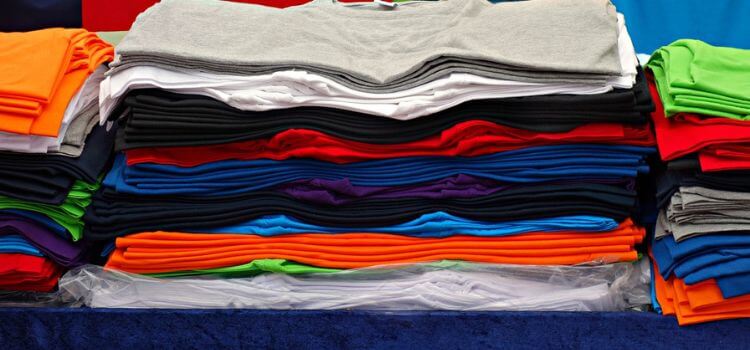As an Amazon Associate I earn from qualifying purchases.

Discovering the ideal materials for polo shirts is paramount for fashion enthusiasts seeking the ultimate blend of style, comfort, and longevity. With a plethora of options at their disposal, including traditional cotton and innovative polyester blends, individuals can tailor their polo shirt selections to suit their unique tastes and lifestyle preferences.
By delving into the distinct advantages of each material, shoppers can make informed decisions, ensuring they find the perfect polo shirt to elevate their wardrobe with both fashion and functionality.
Cotton Material
Cotton stands out as a premier choice for polo shirts due to its exceptional qualities. Highly breathable and comfortable, cotton ensures an enjoyable wearing experience in different climates. Its easy-care nature and affordability make it a practical selection for everyday wear.
When selecting a cotton polo shirt, prioritize those with wrinkle resistance and a touch of stretch for enhanced comfort. Experts recommend opting for a 50% cotton/50% polyester blend or 100% cotton fabric.
While the blend offers superior drape, pure cotton ensures heightened durability, albeit with a slight trade-off in comfort. Ultimately, choosing the right cotton polo shirt guarantees both style and comfort for every event.
Also Read: How to Keep Polo Shirt Collars from Curling?
Benefits of Cotton in Making Polo Shirts
Cotton stands out as a premier choice for crafting polo shirts, offering a multitude of benefits for wearers. Here are the key advantages of using cotton in making polo shirts:
Breathability: Cotton is an organic fiber known for its air circulation, allowing air to circulate easily through the fabric. This inherent property keeps wearers cool and comfortable, making cotton polo shirts ideal for various climates and activities.
Comfort: Renowned for its softness and gentle feel against the skin, cotton ensures a comfortable wearing experience. The smooth texture of cotton fabric enhances overall comfort, making it appropriate for extended wear.
Easy Care: Cotton polo shirts are simple to care for, as they can be quick-clean and machine-dried. This maintenance simplicity saves wearers time and effort, making cotton polo shirts a practical choice for everyday wear.
Durability: Cotton is a sturdy fabric that withstands the rigors of everyday use and laundry. Polo shirts made from high-quality cotton maintain their shape and integrity over time, ensuring longevity and value for money.
Hypoallergenic: Cotton’s hypoallergenic properties make it appropriate for individuals with delicate skin or allergies. Polo shirts crafted from cotton are less likely to cause irritation or allergic reactions, providing wearers with comfort and peace of mind.
Eco-Friendly: Cotton is an eco-friendly material, meaning it naturally decomposes over time without damaging the environment. Polo shirts made from cotton contribute to sustainable fashion practices, offering an eco-friendly alternative to synthetic fabrics.
Polyester
Polyester, particularly recycled polyester, offers eco-conscious consumers a sustainable alternative for polo shirts. Crafted from post-consumer waste like water bottles, recycled polyester boasts lower energy and water consumption during production, along with reduced greenhouse gas emissions.
Despite its eco-friendly nature, recycled polyester maintains the strength and durability synonymous with traditional polyester. Additionally, natural fibers such as cotton and linen stand out as eco-friendly options, providing longevity and resistance to sun damage.
DIY enthusiasts can even create their fabric at home, free from concerns about harmful chemicals, thanks to the pre-washed materials. Opting for these materials ensures both style and sustainability in polo shirt selections.
Benefits of Polyester in Making Polo Shirts
Polyester offers several advantages when used in the production of polo shirts:
Durability: Polyester fabric is renowned for its strength and resilience, making it highly durable for polo shirt construction. Polo shirts made from polyester maintain their shape and integrity over time, resisting stretching, pilling, and tearing.
Moisture-Wicking: Polyester polo shirts excel in moisture management, wicking sweat away from the body to keep the wearer dry and comfortable. This characteristic is particularly helpful during active activities or in hot weather.
Quick Drying: Polyester fabric dries quickly when wet, reducing drying time after washing or sweating. This quick-drying feature helps prevent moisture buildup and ensures a fresh feel throughout the day.
Stain Resistance: Polo shirts made from polyester are inherently resistant to stains and spills due to the fabric’s smooth surface. This stain resistance simplifies cleaning and maintenance, as stains are less likely to penetrate the fabric.
Wrinkle Resistance: Polyester polo shirts maintain a smooth and neat appearance even after extended wear, thanks to their resistance to wrinkles. This feature removes the requirement for frequent ironing, reducing time and effort for the wearer.
Color Retention: Polyester fabric maintains its bright colors even after repeated washing, ensuring long-term colorfastness and visual appeal. This color retention property helps polo shirts retain their original aesthetic attractiveness over time.
Also Read: What to Wear with a Black Polo Shirt?
Cotton vs Polyester in Making Polo Shirts
Cotton and polyester are two primary materials used in crafting polo shirts, each with its distinct characteristics and benefits. Cotton, a natural fiber, offers softness and absorbency, making it perfect for people seeking comfort and moisture-wicking properties. Additionally, cotton is environmentally friendly, requiring less processing than polyester and biodegrading naturally over time. However, cotton may wrinkle more easily than polyester, requiring careful laundering to maintain a neat appearance.
Conversely, polyester, a synthetic fiber, provides durability and quick-drying skills, suitable for those prioritizing practicality and professional appearance. Polyester polo shirts are less prone to wrinkling, making them a preferred choice for formal or corporate settings. Moreover, polyester fabric effectively repels moisture, reducing the risk of sweat stains and ensuring a clean and fresh feel throughout the day.
Ultimately, the choice between cotton and polyester for making polo shirts depends on individual preferences, environmental considerations, and intended use. Whether prioritizing comfort, eco-friendliness, or professional appearance, both fabrics offer unique advantages, catering to diverse needs and preferences in the realm of apparel.
In conclusion, both cotton and polyester offer distinct advantages as materials for crafting polo shirts. Cotton excels in breathability, comfort, and eco-friendliness, while polyester boasts durability, moisture-wicking properties, and quick drying. By understanding the unique features of each substance, individuals can make informed choices to select the best polo shirts for their needs.
Amazon and the Amazon logo are trademarks of Amazon.com, Inc, or its affiliates.




Leave a Reply